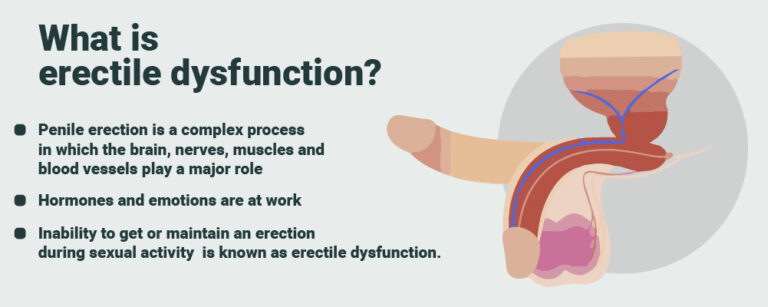How to Unlock the Secrets of Your Deep Sleep Phases and Cycles

Understanding the Importance of Deep Sleep Phases and Cycles

Deep sleep is a crucial aspect of our overall sleep cycle that plays a vital role in maintaining our physical and mental well-being. During this phase, our brain and body undergo essential restorative processes, enabling us to wake up feeling refreshed and energized. Understanding the importance of deep sleep phases and cycles can help us grasp the significance of prioritizing this critical aspect of our sleep routine.
One of the key reasons why deep sleep is so important is because it allows our body to repair and regenerate itself. Throughout the day, our body goes through wear and tear, resulting in the breakdown of cells and tissues. Deep sleep acts as an opportunity for our body to repair this damage, promoting healing and recovery. In addition, this phase of sleep plays a critical role in enhancing our immune system, helping us fight off infections and diseases. Furthermore, deep sleep is essential for memory consolidation, as it enables the brain to process and store information, leading to improved cognitive function. By understanding the importance of deep sleep phases and cycles, we can take steps to prioritize and optimize our sleep routine for maximum benefit.
Exploring the Science Behind Deep Sleep Phases and Cycles

Deep sleep is a crucial phase of the sleep cycle that plays a vital role in restoring the body and mind. During this phase, our body enters a state of complete relaxation and undergoes various physiological processes that promote healing and rejuvenation. Understanding the science behind deep sleep phases and cycles can provide valuable insights into how our sleep patterns impact overall health and well-being.
Deep sleep consists of different stages, including stages 3 and 4, which are collectively known as slow-wave sleep (SWS). These stages are characterized by slow brain wave activity, reduced heart rate, and a decrease in body temperature. It is during these phases that the body repairs tissues, strengthens the immune system, and consolidates memories.
Research has shown that deep sleep is crucial for our cognitive functions, including memory retention and learning ability. It is also believed to play a significant role in regulating emotions and mood. Lack of deep sleep can lead to various health issues, such as cognitive impairment, decreased immune function, and an increased risk of chronic conditions like obesity, diabetes, and cardiovascular disease.
Numerous factors can influence the quality and duration of deep sleep phases and cycles. These include lifestyle habits, sleep environment, stress levels, and even diet. By understanding these factors and implementing healthy sleep habits, we can optimize our deep sleep and reap its numerous benefits for our overall health and well-being.
The Different Stages of Deep Sleep and Their Significance
Deep sleep is a vital and intricate process that occurs in multiple stages throughout the night. Understanding these stages and their significance is crucial in recognizing the importance of deep sleep for our overall well-being.
The first stage of deep sleep is known as N1, or the transition stage from wakefulness to sleep. In this stage, our brain waves slow down, and our muscles begin to relax. It is during this phase that we may experience brief periods of muscle contractions or sudden jerks, which can sometimes disrupt our sleep. While N1 is considered a part of the sleep cycle, it is not classified as deep sleep and only lasts for a short period of time.
The next stage of deep sleep, N2, is characterized by a further decrease in brain activity, along with a decrease in eye movement. This stage comprises the majority of our sleep cycle and is crucial for memory consolidation and cognitive function. During N2, our brain works to sort and store memories, strengthen neural connections, and process information from the day. It is also believed to play a role in regulating body temperature and reducing overall brain activity.
Moving deeper into the stages of deep sleep, we enter N3, also known as slow-wave or delta sleep. This is the stage where our brain waves reach their slowest and most synchronized rhythm. It is during this phase that our bodies undergo important restorative processes, such as tissue repair, cell regeneration, and hormone release. N3 is essential for our physical recovery, immune system function, and growth hormone production, particularly in children and adolescents.
The final stage of deep sleep is Rapid Eye Movement (REM) sleep. Despite its name, REM sleep is not considered a deep sleep stage but rather a unique phase characterized by rapid eye movements, increased brain activity, and vivid dreaming. REM sleep plays a crucial role in memory consolidation, emotional regulation, and overall cognitive functioning. It is also thought to be important for creativity, problem-solving, and learning.
Understanding these different stages of deep sleep and their significance provides a deeper insight into the complexity of our sleep patterns. Each stage serves a specific purpose, contributing to our overall physical and cognitive restoration. By prioritizing and optimizing our deep sleep phases, we can enhance our well-being and overall health.
| Different Stages of Deep Sleep and Their Significance | Characteristics, Duration, and Significance | Credible Source |
|---|---|---|
| Stage N1 of Non-REM Sleep | – Characteristics: Transition from wakefulness to sleep. Light sleep with alpha and theta brain waves. | Sleep Foundation – Stages of Sleep |
| – Duration: Brief periods, typically lasting a few minutes. | ||
| – Significance: Acts as a transitional phase into deeper sleep stages. | ||
| Stage N2 of Non-REM Sleep | – Characteristics: Marked by the presence of sleep spindles and K-complexes. | |
| – Duration: Accounts for a significant portion of the sleep cycle. | ||
| – Significance: Plays a role in memory consolidation and overall sleep stability. | ||
| Stage N3 of Non-REM Sleep (SWS) | – Characteristics: Dominated by slow delta brain waves. | |
| – Duration: Typically occurs in the first half of the night. | ||
| – Significance: Vital for physical restoration and recovery. |
Identifying the Indicators of Deep Sleep Phases and Cycles
When it comes to understanding the importance of deep sleep, identifying the indicators of its different phases and cycles becomes crucial. Deep sleep is characterized by slow brain wave activity, low muscle tone, and limited eye movement. During this stage, the body undergoes various physiological changes that contribute to overall health and well-being.
One of the primary indicators of deep sleep is the length of time spent in this stage during the sleep cycle. Typically, deep sleep occurs earlier in the night, with the first few sleep cycles consisting of longer periods of deep sleep. As the night progresses, the duration of deep sleep decreases, and the REM (rapid eye movement) stage becomes more prominent. Monitoring the time spent in deep sleep can be done using sleep tracking devices or apps, which provide valuable insights into sleep patterns and help identify any disruptions or deficiencies in deep sleep phases and cycles.
Another indicator of deep sleep is the occurrence of slow wave activity (SWA) in the brain. SWA is characterized by low-frequency brain waves, such as delta waves, that are associated with deep sleep. Research studies have shown a correlation between higher levels of SWA and improved cognitive function, memory consolidation, and physical recovery. Advanced sleep monitoring techniques, such as EEG (electroencephalography), can measure the brain’s electrical activity during sleep and provide detailed information about the depth and quality of deep sleep phases and cycles.
Understanding these indicators can help individuals assess their sleep quality and make necessary adjustments to optimize deep sleep. By paying attention to the duration of deep sleep and monitoring brain activity patterns, individuals can take proactive steps to improve sleep habits and create an environment conducive to deeper, more restorative sleep. In the next section, we will explore the impact of deep sleep on overall health and well-being, further emphasizing the importance of identifying and enhancing this critical phase of the sleep cycle.
The Impact of Deep Sleep on Overall Health and Well-being

Deep sleep plays a crucial role in maintaining overall health and well-being. During this stage of sleep, the body undergoes essential restorative processes that are vital for various physiological functions. One of the primary benefits of deep sleep is its ability to support the immune system. Research has shown that individuals who regularly experience deep sleep phases have a stronger immune response, reducing their susceptibility to infections and diseases.
Furthermore, the impact of deep sleep on mental well-being should not be overlooked. Studies have demonstrated a significant correlation between deep sleep and emotional regulation. Adequate deep sleep phases have been linked to improved mood, reduced stress levels, and enhanced cognitive function. On the other hand, sleep deprivation or disturbances in deep sleep can lead to an increased risk of mental health issues such as anxiety and depression.
The importance of deep sleep extends beyond immune function and mental well-being. It also plays a vital role in physical recovery and repair. During deep sleep cycles, the body releases hormones that promote tissue growth and repair, aiding in muscle recovery and overall physical rejuvenation. This is especially significant for individuals who engage in regular physical activity or have physically demanding occupations. By optimizing deep sleep patterns, one can maximize their body’s ability to heal and regenerate, supporting optimal physical health and performance.
Factors That Influence the Quality and Duration of Deep Sleep
Factors That Influence the Quality and Duration of Deep Sleep
Sleep is a complex physiological process regulated by various factors, both internal and external, that can significantly impact the quality and duration of deep sleep phases. One crucial factor that influences deep sleep is the sleep environment. Creating a comfortable and conducive sleep environment plays a vital role in promoting deep sleep. Factors such as noise, temperature, light, and even the comfort of your mattress and pillows can all affect the quality of your sleep. It is important to ensure that your sleep environment is quiet, cool, dark, and comfortable, as these conditions can enhance your ability to achieve and maintain deep sleep phases.
Another factor that influences deep sleep is the use of technology and electronic devices before bedtime. The blue light emitted by smartphones, tablets, and computers can suppress the production of melatonin, a hormone that regulates sleep. This can disrupt your circadian rhythm and make it more difficult to fall asleep and enter deep sleep phases. It is advisable to limit the use of electronic devices at least an hour before bedtime and to activate features such as night mode or blue light filters to reduce the impact of blue light on your sleep. Creating a technology-free bedtime routine, such as reading a book or practicing relaxation techniques, can also help prepare your mind and body for a restful night’s sleep.
Developing Healthy Sleep Habits to Enhance Deep Sleep Phases and Cycles
Developing healthy sleep habits is essential for enhancing deep sleep phases and cycles. These habits can significantly improve the overall quality of your sleep, allowing you to reap the numerous benefits associated with deep sleep. One important habit to develop is maintaining a consistent sleep schedule. Going to bed and waking up at the same time every day helps regulate your body’s internal clock, promoting a more structured sleep-wake cycle. This consistency can enhance the duration and quality of your deep sleep phases, ultimately leading to better restorative sleep.
Creating a relaxing bedtime routine is another valuable habit to enhance deep sleep phases and cycles. Engaging in calming activities before bed, such as reading a book or taking a warm bath, can signal to your body that it’s time to wind down and prepare for sleep. It’s crucial to avoid stimulating activities, especially those involving screens, as they can hinder the production of melatonin, a hormone that promotes sleep. By incorporating relaxation techniques into your bedtime routine, you can help reduce stress and anxiety, allowing your body to enter deep sleep more easily.
In conclusion, developing healthy sleep habits is paramount for enhancing deep sleep phases and cycles. Consistency in your sleep schedule and engaging in relaxing activities before bed can significantly improve the duration and quality of deep sleep. By prioritizing these habits and making them a part of your daily routine, you can optimize your sleep and reap the many benefits that deep sleep has to offer.
The Role of Sleep Environment in Facilitating Deep Sleep
Creating a sleep environment that is conducive to deep sleep is crucial for optimizing the quality of your rest. Your sleep environment includes factors such as temperature, light, noise, and comfort, all of which can greatly impact your ability to enter and maintain deep sleep phases.
One key aspect of your sleep environment is the temperature of your bedroom. Research has shown that a slightly cooler room temperature can promote deeper sleep. The ideal temperature for most people is between 60 and 67 degrees Fahrenheit (15 to 19 degrees Celsius). This range helps your body cool down, which is necessary for initiating and maintaining deep sleep. Consider adjusting your thermostat or using fans or air conditioning to create a cooler sleep environment.
Another important factor to consider in your sleep environment is light. Darkness is vital for your body’s production of melatonin, the hormone that regulates sleep. Exposure to too much light, especially the blue light emitted by electronic devices, can inhibit melatonin production and disrupt your sleep patterns. To promote deep sleep, try to eliminate sources of light in your bedroom, such as bright digital clocks or streetlights outside. Consider using blackout curtains, eye masks, or dim the lights before bed to create a dark environment that encourages deep sleep.
By paying attention to your sleep environment and making adjustments to promote deep sleep, you can enhance the overall quality of your rest and wake up feeling refreshed and rejuvenated.
Effective Strategies for Relaxation and Stress Reduction Before Sleep
Creating a calming and stress-free environment before sleep is essential for a good night’s rest. Incorporating effective strategies for relaxation and stress reduction can help promote deeper levels of sleep and improve overall sleep quality. One such strategy is to establish a consistent bedtime routine that includes activities known to induce relaxation, such as reading a book, listening to soothing music, or practicing gentle stretching exercises. Engaging in these activities before sleep can help signal to the body and mind that it is time to unwind and prepare for rest.
Another effective strategy is to incorporate mindfulness techniques into your pre-sleep routine. Mindfulness involves focusing your attention on the present moment and accepting it without judgment. Practicing mindfulness before sleep can help alleviate stress and promote a sense of calmness. Techniques such as deep breathing exercises, meditation, or progressive muscle relaxation can be particularly effective in reducing stress levels and preparing the body for deep sleep. It is worth noting that these strategies may vary in effectiveness from person to person, so it can be helpful to experiment with different techniques and find what works best for you.
Optimizing Your Bedroom for Improved Deep Sleep
Your bedroom environment plays a crucial role in facilitating deep and restorative sleep. By optimizing your bedroom, you can create a sleep-friendly space that promotes relaxation, comfort, and ultimately, improved deep sleep phases and cycles.
One important consideration when optimizing your bedroom for deep sleep is controlling the lighting. Exposure to bright lights, especially in the evening, can disrupt your body’s natural sleep-wake cycle. Consider investing in blackout curtains or blinds to block out external light sources and promote a darker sleep environment. Additionally, using dimmable lights or soft, warm-toned lamps in your bedroom can create a soothing ambiance that signals to your brain that it’s time to wind down and prepare for sleep.
Another factor to consider is the temperature of your bedroom. A cooler room temperature, ideally between 60 to 67 degrees Fahrenheit (15 to 19 degrees Celsius), is generally recommended for optimal sleep. It’s important to note that individual preferences may vary, so adjusting the temperature to find your personal comfort level is key. Experiment with bedding materials, such as breathable sheets and blankets, that can help regulate body temperature and promote a cooler sleep environment. Additionally, circulating fresh air and ensuring proper ventilation can contribute to a comfortable and sleep-inducing atmosphere.
The Connection Between Diet and Deep Sleep Quality
Eating a balanced and nutritious diet not only plays a crucial role in maintaining overall health, but it also has a profound impact on the quality of our sleep, including deep sleep phases and cycles. Research has shown that certain dietary choices can either enhance or hinder the depth and duration of deep sleep.
One important factor to consider is the consumption of foods that contain tryptophan, an amino acid that helps regulate serotonin and melatonin levels in the body. These neurotransmitters are essential for promoting relaxation and inducing sleep. Foods such as turkey, chicken, salmon, nuts, seeds, and tofu are rich sources of tryptophan and can potentially enhance deep sleep quality. Conversely, consuming heavy and greasy meals close to bedtime can impede deep sleep by interfering with digestion and causing discomfort.
Exercising for Better Deep Sleep Phases and Cycles
Regular exercise has long been recognized as a crucial component of maintaining overall health and well-being. In addition to its numerous physical benefits, exercise has also been found to play a significant role in improving the quality and duration of deep sleep phases and cycles. Several studies have shown that engaging in regular physical activity can help individuals achieve a more restful sleep with increased time in the deep sleep stages.
One of the primary mechanisms through which exercise impacts deep sleep is by reducing anxiety and promoting relaxation. Physical activity helps to lower stress levels by releasing endorphins, the body’s natural mood boosters, and reducing the levels of stress hormones like cortisol. This reduction in stress and anxiety is particularly beneficial in facilitating a transition to the deep sleep stages, as it creates an environment conducive to relaxation and restfulness. Research has shown that individuals who engage in regular exercise experience improved sleep efficiency, enhanced deep sleep duration, and reduced awakenings during the night. The impact on deep sleep is especially notable, as this is the stage of sleep where the body repairs and rejuvenates itself.
Utilizing Technology and Apps to Track and Improve Deep Sleep
In today’s digital age, technology has become an integral part of our daily lives. From smartphones to fitness trackers, there are now numerous apps and devices available that can help us track and improve various aspects of our health, including our sleep. Utilizing technology and apps to track and improve deep sleep has gained considerable attention in recent years, as researchers have recognized the vital role that quality sleep plays in our overall well-being.
One of the key benefits of using technology to track deep sleep is the ability to gain valuable insights into our sleep patterns. Many sleep tracking apps and devices provide detailed information about the duration and quality of our deep sleep phases, as well as other sleep metrics like sleep efficiency and sleep stages. This data can help us identify any disruptions or inefficiencies in our sleep, allowing us to make targeted improvements. Additionally, some apps even offer personalized recommendations and sleep coaching based on the data collected, providing us with actionable strategies to enhance our deep sleep phases and overall sleep quality.
However, it is important to note that while technology can be a helpful tool for tracking and improving deep sleep, it should not be considered as a substitute for adopting healthy sleep habits. Utilizing technology should be seen as a supplementary approach to improving our sleep, rather than a standalone solution. Implementing practices such as maintaining a consistent sleep schedule, creating a conducive sleep environment, and practicing relaxation techniques before bed are crucial for optimizing our deep sleep phases and cycles. Ultimately, a holistic approach that combines technology, healthy sleep habits, and professional guidance can contribute to meaningful improvements in our sleep quality and overall well-being.
What is deep sleep?
Deep sleep refers to the stage of sleep where the body experiences its most restorative and rejuvenating effects. It is characterized by slow brain waves, relaxed muscles, and limited eye movement.
Why is deep sleep important?
Deep sleep is essential for various functions in the body, including memory consolidation, hormone regulation, tissue repair, and immune system maintenance. It helps promote overall health and well-being.
How many stages are there in deep sleep?
There are typically three stages of deep sleep, known as N3 or slow-wave sleep. These stages are categorized based on different brain wave patterns and levels of relaxation.
How can I identify if I am in deep sleep?
Technology and apps can analyze various factors such as heart rate, brain wave patterns, and movement to determine the different stages of sleep, including deep sleep. These tools can provide insights into your sleep quality and duration.
What factors can affect the quality and duration of deep sleep?
Various factors can influence deep sleep, including stress levels, sleep environment, daily habits, diet, exercise, and overall sleep hygiene. Addressing these factors can help improve the quality and duration of deep sleep.
How does deep sleep impact overall health and well-being?
Deep sleep plays a crucial role in promoting physical and mental health. It helps strengthen the immune system, enhance cognitive function, regulate hormones, and improve mood and emotional well-being.
How can I develop healthy sleep habits to enhance deep sleep?
Establishing a consistent sleep schedule, creating a relaxing bedtime routine, optimizing your sleep environment, and practicing relaxation techniques can all contribute to better deep sleep.
How does diet affect deep sleep quality?
Certain foods and drinks, such as caffeine, alcohol, and heavy meals, can disrupt deep sleep. It is recommended to avoid consuming these substances close to bedtime to promote better sleep quality.
Can exercise help improve deep sleep?
Regular physical activity has been shown to enhance deep sleep. Engaging in moderate-intensity exercise during the day can help promote better sleep quality and duration, including deep sleep.
How can technology and apps help track and improve deep sleep?
Technology and sleep-tracking apps can monitor sleep patterns, provide insights into deep sleep stages, and offer recommendations to improve sleep quality. They can help individuals track their progress and make necessary adjustments for better deep sleep.





